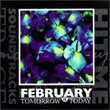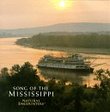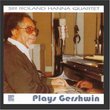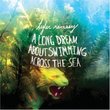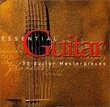| All Artists: Glass; Wu Man; Chang; Feeney; Rejto; Sher; Cook Title: Philip Glass: Theater Music from the Philip Glass Recording Archive, Vol. 1 Members Wishing: 2 Total Copies: 0 Label: Orange Mountain Music Original Release Date: 1/1/2007 Re-Release Date: 4/24/2007 Genre: Classical Styles: Chamber Music, Historical Periods, Classical (c.1770-1830) Number of Discs: 1 SwapaCD Credits: 1 UPC: 801837004427 |
Search - Glass; Wu Man; Chang; Feeney; Rejto; Sher; Cook :: Philip Glass: Theater Music from the Philip Glass Recording Archive, Vol. 1
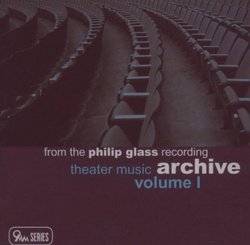 | Glass; Wu Man; Chang; Feeney; Rejto; Sher; Cook Philip Glass: Theater Music from the Philip Glass Recording Archive, Vol. 1 Genre: Classical
From the Philip Glass Recording Archive Vol. 1 represents the first release by Orange Mountain Music from the extensive archive of recordings made in the last 40 years of Philip Glass' recording career. Theater Music Vol.... more » |
Larger Image |
CD DetailsSynopsis
Product Description From the Philip Glass Recording Archive Vol. 1 represents the first release by Orange Mountain Music from the extensive archive of recordings made in the last 40 years of Philip Glass' recording career. Theater Music Vol. 1 features two ravishingly beautiful works from the world of theater: the instrumental suite from Glass' 2003 chamber opera is highlighted by eastern and western instrumentation in one of Glass' most original scores. In the Summer House is music composed for the revival of the 1953 Bowles play. Both these scres bring a rare chance to hear one of the most important theater composers of our time in unknown scores. Similar CDs
Similarly Requested CDs
|
CD ReviewsAn unremarkable curiosity Russ | Richmond, VA | 07/29/2007 (3 out of 5 stars) "Philip Glass' musical contribution to the stage has been significant. He has composed several operas, film scores and dance pieces. So in that regard, a series dedicated to Glass theater works certainly makes sense. What doesn't make sense is to launch such a series with two unknown, lackadaisical suites containing hardly any of the musical traits (recurring arpeggiations, surging momentum, etc.) for which Glass became known. The first suite, 'The Sound of a Voice', dates from 2003 and is scored for violin, cello, flute, pipa (a plucked instrument having origins in China) and percussion. In this suite (assembled from an opera), Glass blends Eastern and Western influences - the incorporation of the pipa in this suite gives the work an Asiatic feel. There are some endearing moments, but the work seems a bit disjointed, and most of the themes themselves are rather forgettable. It should be noted there are several audible coughs in the recording of this work. The second suite, 'In the Summer House', dates from 1993 and is scored for violin and cello. The eighteen movements of this suite last about a minute and a half each, so it is somewhat difficult for the listener to become particularly engrossed in any one movement. Given the economical orchestration, and short movement duration, I was looking for something to grab my attention from a melodic or rhythmic standpoint. Unfortunately, while this music contains a longing quality that is appealing, no one part of the suite jumped out at me as being melodically or rythmically outstanding. There is nothing terrible here, but there is not anything remarkable here either. I am hopeful that future releases in this series will contain more interesting musical material, and that the background noise heard in 'The Sound of a Voice' will be cleaned up (or maybe the title should be changed to 'The Sound of a Voice and a Cough' - sorry, I could not resist that one). Actually, I find some moments in that suite to be engaging, and the use of Eastern ideas is somewhat refreshing; there is just too much unmemorable material in between the interesting sections. If you a serious Glass admirer (i.e., me), you will probably find a couple of enjoyable moments here. But if you are a casual Glass fan, you can probably skip this one (but do be sure to acquire the excellent Philip Glass: The Concerto Project, Vol. 1, if you have not done so already). TT: 53:38" Stage and film music is brilliantly reinvented Jacques COULARDEAU | OLLIERGUES France | 09/20/2007 (5 out of 5 stars) "It has been a common practice to compose for the stage or the silver screen for some time. Without speaking of the opera that plunges its roots in medieval church oratorios in the 13th century (Ludus Danieli), it was common in Shakespeare's time to have several songs in a play, comedy or tragedy alike, and with Purcell, after the Puritan and Glorious Revolutions, the semi-opera was invented with both instrumental and vocal music in interludes all along a play. This practice of having music in dramatic productions has been constant since then and the cinema multiplied the practice, especially mute films with special compositions performed live. But even today's films all have a composer and a full musical score. Philip Glass is one composer who dedicated his inspiration and energy to such compositions. In this first volume two titles are recorded "The Sound of a Voice" in the form of a long suite and "In the Summer House" in the form of a series of independent short pieces. Here Philip Glass used traditional instruments from the orchestra and in their normal use that is to say un-amplified. The first originality and great power of this music is the assemblage of instruments. Some of his percussions are in sharp contrast with the traditional violin or cello. The second originality is the composition itself that is extremely inventive and at times surprising, and of course, the use of a constantly varying tempo that makes the music ill-tempered but so expressive, emotional even, by creating an ambience, an atmosphere, a coloration that varies from now to then, from here to there and the varying texture or rhythm gives depth to the music and that is perfectly adapted to the stage or the screen. But Philip Glass composes a music that is nevertheless perfectly autonomous, fully developed and that can stand on its own feet. That explains why the first suite really feels like one piece. But with the second title which is a series of small pieces, though there are common elements in them, like the choice of leading instruments, each small piece is extremely original and we do not get the impression of tidbits or crumbs from a bigger loaf we would never get. In fact each piece is really an original and in a way autonomous variation of the previous one and it leads to the next one which will be a further and extra variation. One of the tricks he often uses is to have two tempo line. A continuo with its own tempo and a foreground line whose tempo can vary from being in phase with the continuo or being faster or even slower. A times he inverts the game and makes the continuo level of the music the stratum that becomes free and changing. That gives to this music a mesmerizing resonance in our minds. Dr Jacques COULARDEAU, University Paris Dauphine, University Paris 1 Pantheon Sorbonne & University Versailles Saint Quentin en Yvelines " An Admirable Beginning Marvin Cohodas | Vancouver, BC, Canada | 08/07/2007 (4 out of 5 stars) "Philip Glass' incidental and other types of music for live theatre are among his earliest post-Juliard compositions, and this genre has continued to occupy him consistently through the present day. While his scores for films are often issued on CD very soon after the film opens, his stylistically related scores for live theatre are often buried in archives, left unheard unless the play is revived. Thus it is to OMM's credit that this company has begun a program of commercially producing this large corpus of musical writing by arguably the most important and influential composer of the last 30 years.
The theatre music featured on this first volume of the archive was written for the 1993 revival of Jane Bowles', In the Summer House. The revival was directed by Joanne Akalaitis, Glass' first wife with whom he collaborated on several plays in the early stages of his career, and with whom he is reported to be again collaborating at present. The other composition on the CD is as suite of music from Glass' 2003 opera, The Sound of a Voice, the setting of two stories of Japan from a libretto by David Henry Hwang, librettist also for the 1992 opera, The Voyage. The Sound of a Voice suite is a live performance, so it is not divided into tracks, though it consists of about eight selections. These two suites go surprisingly well together. They both involve small instrument ensembles and feature a similar calm emotional tone, hence the reduction of Glass' characteristic "driving rhythms" in favor of a clearer melodic line. The contrast that makes this juxtaposition work is in the instruments chosen and the atmosphere they produce. Prevalence of the pipa and flute in Sound of a Voice provides an appropriate and intriguing oriental flavor. For In the Summer House, the cello and violin are suited perfectly to the dark anxiety that one reviewer, in describing a major character in the play, called an `aura of crumbling gentility.' This is a fine beginning to an admirable project and has already provided me many hours of listening enjoyment." |

 Track Listings (19) - Disc #1
Track Listings (19) - Disc #1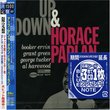



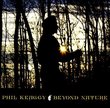
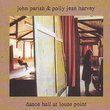

![Sepharad: Songs of the Spanish Jews in the Mediterranean and the Ottoman Empire [IMPORT]](https://nationalbookswap.com/cd//m/52/8952/308952.jpg)
